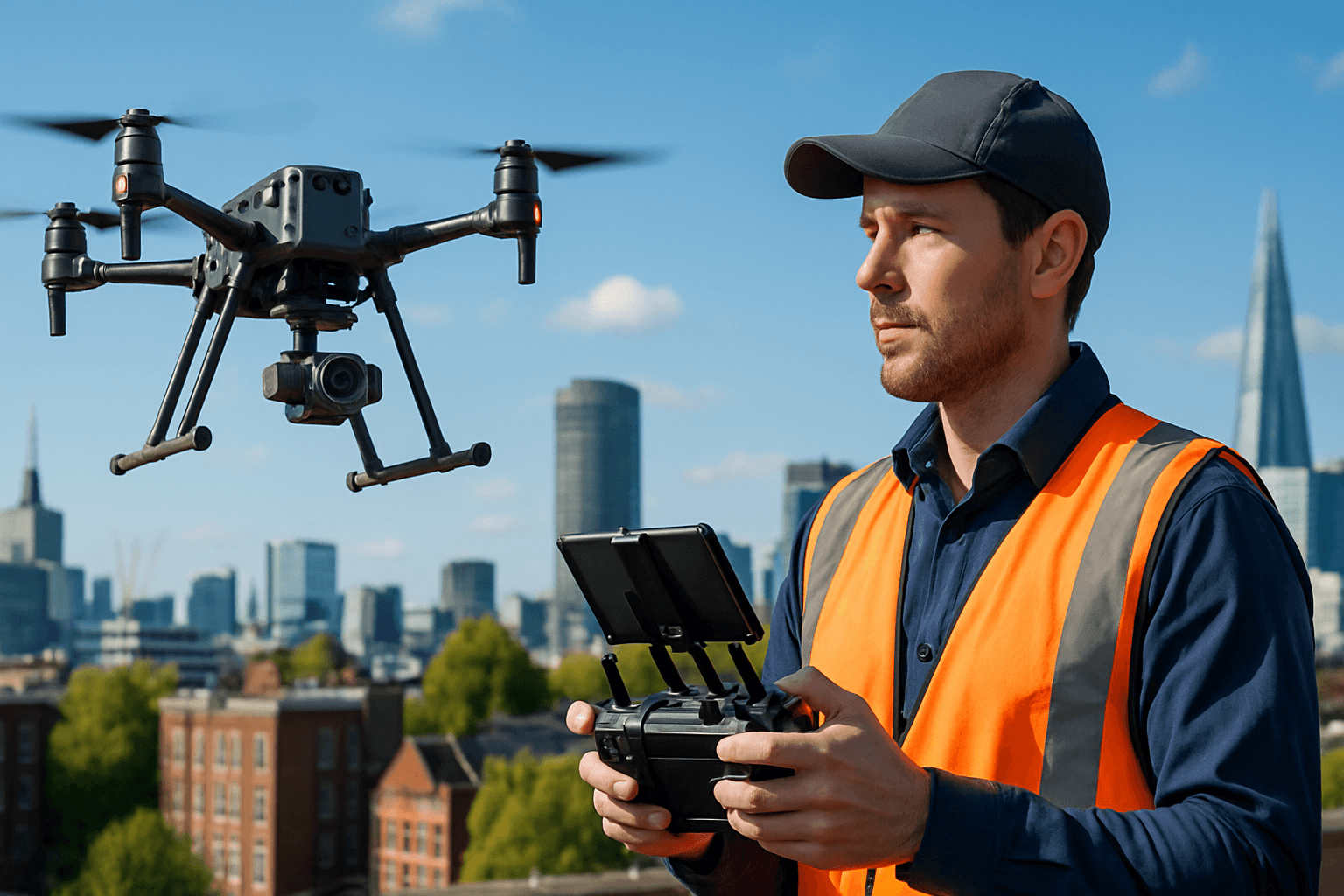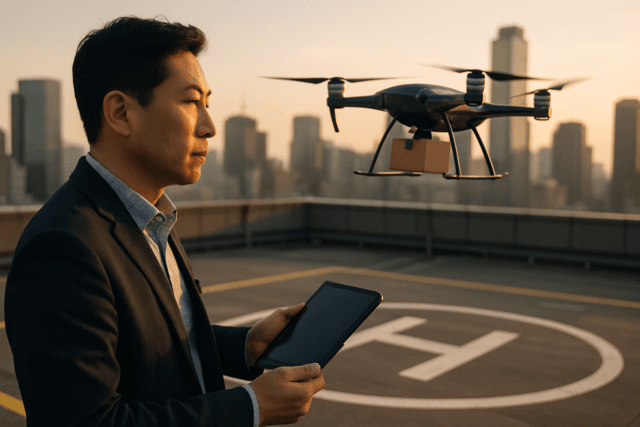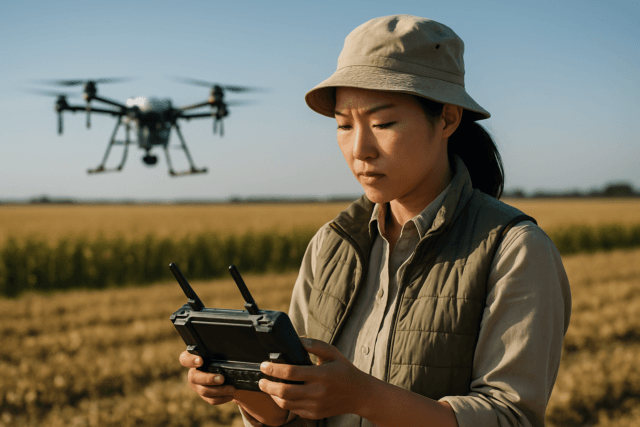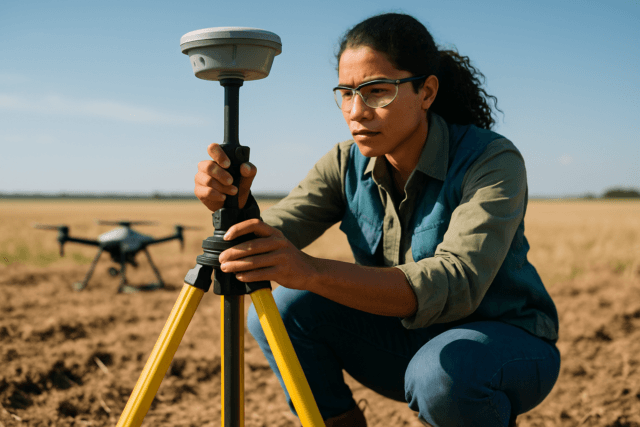The drone industry is taking off, presenting exciting career opportunities for skilled pilots in the UK. From aerial photography and surveying to inspections and delivery services, drones are revolutionizing various sectors. If you’re passionate about aviation and technology, becoming a drone pilot could be your dream job. This comprehensive guide will provide you with the knowledge and steps you need to navigate the UK drone job market and launch a successful career.
What Does a Drone Pilot Do?
Drone pilots, also known as Unmanned Aerial Vehicle (UAV) pilots, remotely operate drones for a variety of purposes. Their responsibilities can vary depending on the industry and specific role, but some common tasks include:
- Planning and executing flights: This involves assessing the site, weather conditions, and potential hazards, as well as creating flight plans that comply with regulations.
- Operating the drone: Skilled piloting is essential for capturing high-quality data, images, or videos.
- Data collection and analysis: Depending on the job, drone pilots may be responsible for collecting and processing data gathered by the drone’s sensors and cameras.
- Inspecting equipment: Regular maintenance and pre-flight checks are crucial for ensuring safe and efficient operations.
- Adhering to regulations: Drone pilots must stay up-to-date with the latest regulations and guidelines set by the Civil Aviation Authority (CAA).
Carys, a drone operator, describes her job as varied, with days ranging from flying drones for live TV broadcasts to filming racing cars. Drone pilots may also work with fire or mountain rescue services or inspect structures like wind turbines and communication towers in situations unsafe for humans.
Is a Drone Pilot Career Right for You? Skills and Qualities to Consider
Before embarking on a drone pilot career, consider whether you possess the necessary skills and qualities to succeed. Key attributes include:
- Technical aptitude: A strong understanding of drone technology, software, and maintenance is essential.
- Piloting skills: Excellent hand-eye coordination, spatial awareness, and the ability to control the drone precisely are crucial.
- Attention to detail: Thoroughness and precision are vital for flight planning, data collection, and safety inspections.
- Problem-solving skills: Drone pilots must be able to troubleshoot technical issues and adapt to changing conditions.
- Knowledge of regulations: A comprehensive understanding of UK drone regulations is essential for legal and safe operations.
- Communication skills: Clear communication with clients, team members, and air traffic control is important.
- Adaptability: The ability to work in various environments and adapt to different project requirements is beneficial.
Essential Qualifications and Training for Drone Pilots in the UK
To legally operate drones commercially in the UK, you’ll need to obtain the necessary qualifications and permissions from the CAA. The specific requirements depend on the type of drone you’ll be flying and the nature of your operations.
Flyer ID and Operator ID: Anyone flying a drone weighing over 250 grams must register with the CAA and pass an online safety test to obtain a Flyer ID and an Operator ID. The Flyer ID confirms you understand basic drone safety rules, while the Operator ID is required for individuals operating camera-equipped drones for commercial purposes.
A2 Certificate of Competency (A2 CofC): This certificate allows you to fly drones in the A2 subcategory of the Open Category, meaning you can fly relatively close to people under controlled conditions. It’s obtained by passing a theory exam through a CAA-approved training provider.
General Visual Line of Sight Certificate (GVC): The GVC is a more advanced qualification that allows you to apply for an Operational Authorisation, enabling you to conduct a wider range of commercial drone operations.
- To obtain a GVC, you’ll need to complete a training course with a Recognised Assessment Entity (RAE) approved by the CAA. The training typically lasts between 2 and 4 days and covers:
- UK air regulations
- Flight safety
- Flight planning
- Theory test (60 multiple-choice questions, 75 minutes, 75% passing score)
- Practical flight skills assessment
- You’ll also need to write an operations manual detailing how you’ll use your drone commercially.
- To obtain a GVC, you’ll need to complete a training course with a Recognised Assessment Entity (RAE) approved by the CAA. The training typically lasts between 2 and 4 days and covers:
Specific Operations Risk Assessment (SORA): For more complex operations that fall outside the standard permissions, you may need to conduct a SORA to assess the risks and implement appropriate safety measures.
Staying Updated: The CAA regularly updates its rules, so it’s important to check their website and attend industry conferences to stay informed.
Landing Your First Drone Pilot Job: A Step-by-Step Guide
- Get Qualified: Obtain the necessary certifications, such as the A2 CofC or GVC, to demonstrate your knowledge and skills.
- Build a Portfolio: Create a portfolio showcasing your best work, including videos, photographs, and other deliverables from your projects.
- Network: Attend industry events, join online forums, and connect with other drone professionals to expand your network and learn about job opportunities.
- Specialize in a Niche: Consider specializing in a specific area, such as aerial photography, surveying, or inspections, to increase your marketability.
- Gain Experience: Look for entry-level positions or volunteer opportunities to gain practical experience and build your resume.
- Craft a Strong Resume: Highlight your qualifications, skills, and experience in a clear and concise resume.
- Tailor Your Application: Customize your resume and cover letter for each job application, emphasizing the skills and experience that are most relevant to the specific role.
- Prepare for the Interview: Research the company and the role, and be prepared to answer questions about your drone knowledge, flying experience, and problem-solving skills.
Where to Find Drone Pilot Jobs in the UK
- Online Job Boards: Websites like Indeed, Reed.co.uk, Totaljobs, and UAV Jobs list drone pilot positions.
- Networking: Attend industry events, join online forums, and connect with other drone professionals.
- Direct Applications: Contact companies that use drones in their operations, such as those in construction, agriculture, or media.
- Specialized Drone Companies: Some companies specialize in drone services, offering opportunities for pilots, technicians, and data analysts. Examples include DroneSwarm.
What to Expect in a Drone Pilot Job
- Varied Work: Drone pilot jobs can be incredibly varied, with opportunities to work in diverse industries and environments.
- Freelance vs. Full-Time: Many drone pilots work as freelance contractors, while others find full-time positions with companies or organizations. Self-employment appears to be the career path of choice for most drone pilots, with 62% of drone services providers working for themselves.
- Travel: Drone pilot jobs often involve travel to different locations, so be prepared to be on the move.
- Flexible Hours: Depending on the role, you may need to work evenings and weekends.
- Continuous Learning: The drone industry is constantly evolving, so you’ll need to stay up-to-date with the latest technologies, regulations, and best practices.
Salary Expectations for Drone Pilots in the UK
Drone pilot salaries in the UK vary depending on experience, qualifications, industry, and location.
- Entry-Level: Junior operators can expect to earn between £20,000 and £30,000 per year.
- Mid-Level: Experienced operators with several years of commercial flying experience can earn £30,000 to £45,000 or more.
- Senior/Managerial: Senior pilots or UAV team leads in larger organizations or specialized sectors can command upwards of £50,000 annually.
According to Aviation Job Search (2024), the average salary for drone pilots in the United Kingdom ranges from £30,000 to £50,000 annually. However, some sources indicate potential earnings of £35,000 to £60,000 per year, particularly in specialized fields.
Factors Influencing Salary:
- Experience: As with most professions, more experienced drone pilots can command higher salaries.
- Qualifications: Holding advanced certifications and licenses can increase your earning potential.
- Industry: Certain industries, such as surveying and mapping, oil and gas, and high-end cinematography, tend to offer higher salaries.
- Location: Salaries may vary depending on the location of the job, with London and other major cities potentially offering higher pay.
The Future of Drone Pilot Jobs in the UK
The drone industry is poised for continued growth in the UK, creating even more opportunities for skilled drone pilots. PwC predicted that over 628,000 people would be employed in the ‘drone economy’ by 2030 in the UK. As drones become more integrated into various sectors, the demand for qualified pilots will continue to rise. By investing in the necessary training, building a strong portfolio, and staying up-to-date with industry trends, you can position yourself for a successful and rewarding career as a drone pilot in the UK.





